'I think by 2028 you will be able to buy a Hy4'
PH met with Alpine CEO Philippe Krief at Le Mans to discuss Alpenglow, the future of hydrogen and lightweight EVs
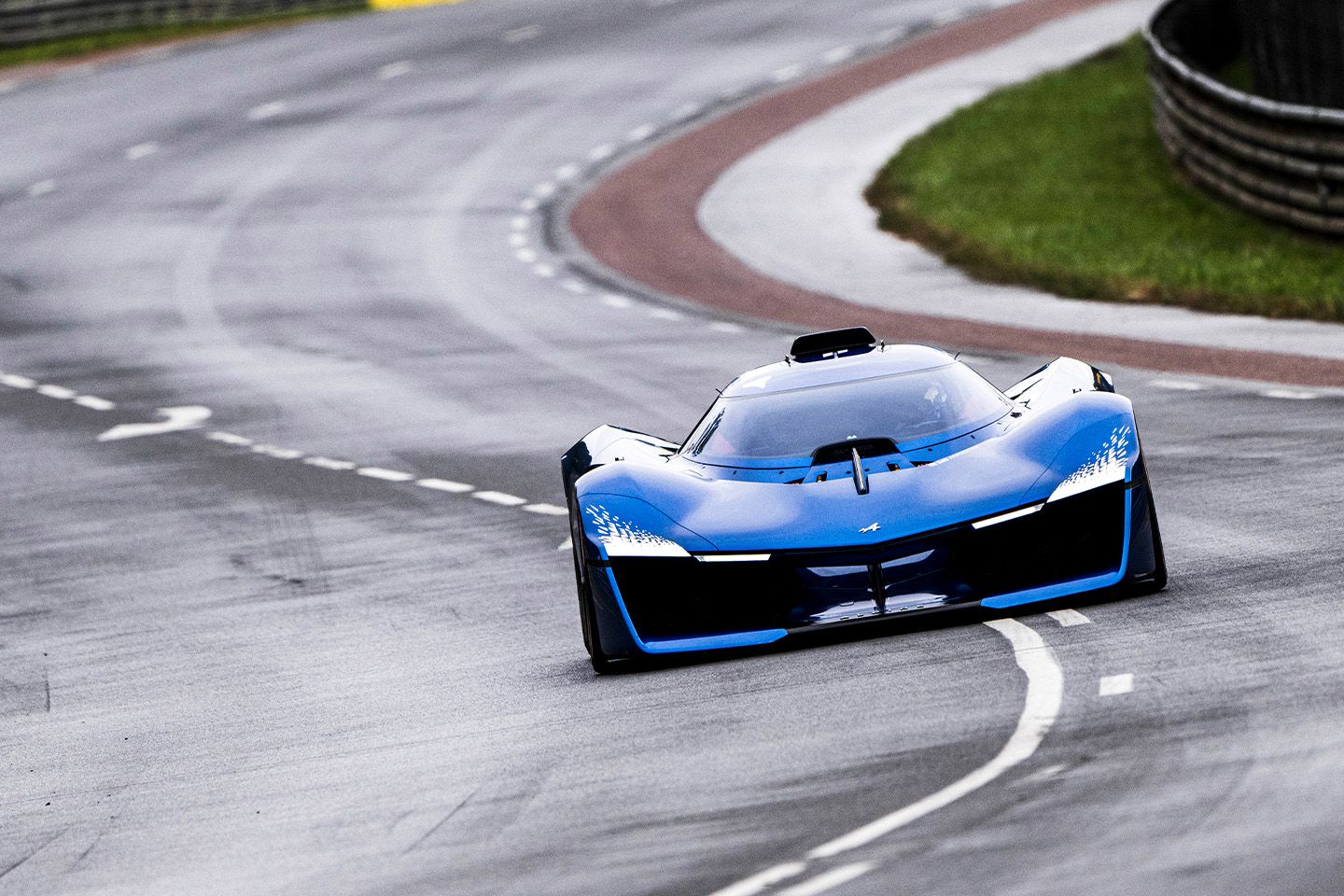
For the last seven years, Alpine has been hard at work reinventing itself as France’s premium performance car maker, one able to hold its own against the might of Porsche, Audi and (financial difficulties aside) Lotus. So far, the reborn A110 has been doing all the heavy lifting, but the announcement of the production-grade A290 at last weekend’s 24 Hours of Le Mans has finally set the company’s ‘dream garage’ plan (launched all the way back in 2021) in motion.
Leading Alpine’s expansion is Philippe Krief, a highly experienced chassis engineer whose gold-standard CV includes stints at Michelin, Maserati and Alfa Romeo, and oversaw the development of the Ferrari 458 Speciale while serving as the company’s engineering boss. Krief was only appointed as the company’s chief a year ago, inheriting projects like the A290, the as-yet-unnamed Alpine electric crossover and an EV successor to the A110. But the engineer-turned-CEO has a clear long-term vision for the brand which, spoiler alert, doesn’t rule out future combustion models.
After the A290’s reveal, we sat down for a coffee and a chat with Krief in the final hours of another epic edition of the Le Mans 24 - a sentiment probably not shared by Alpine, given both of its A424 hypercars retired early on with engine issues. A difficult start to the French marque’s return to the top category at the endurance race, especially as the V6-powered hypercars were performing far better than they have all season, but Krief seemed unfazed by the team’s troubles. “On one side, we’re quite happy with the performance because the car was fast. On the other side, we had some reliability problems. We’ll learn from that.”
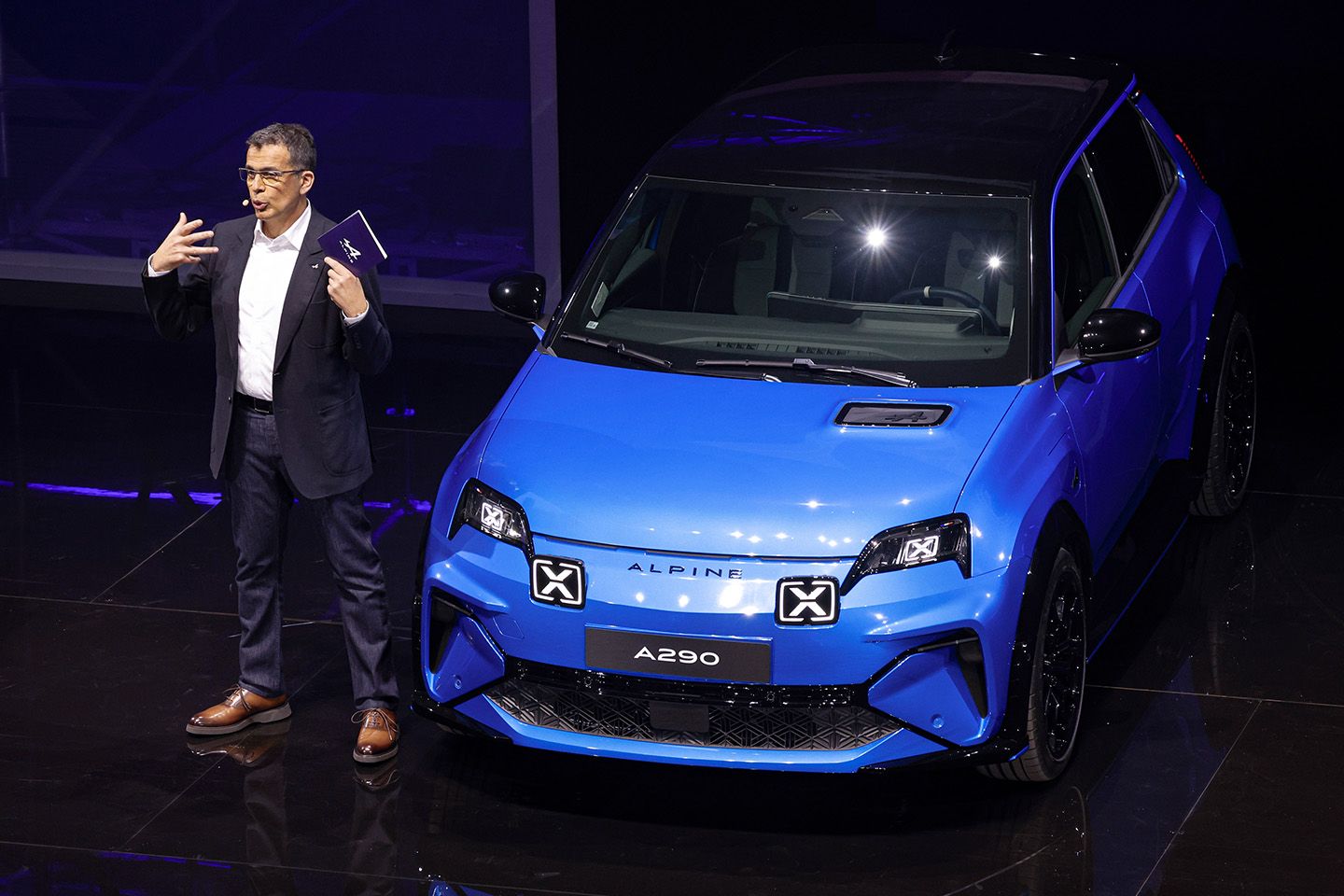
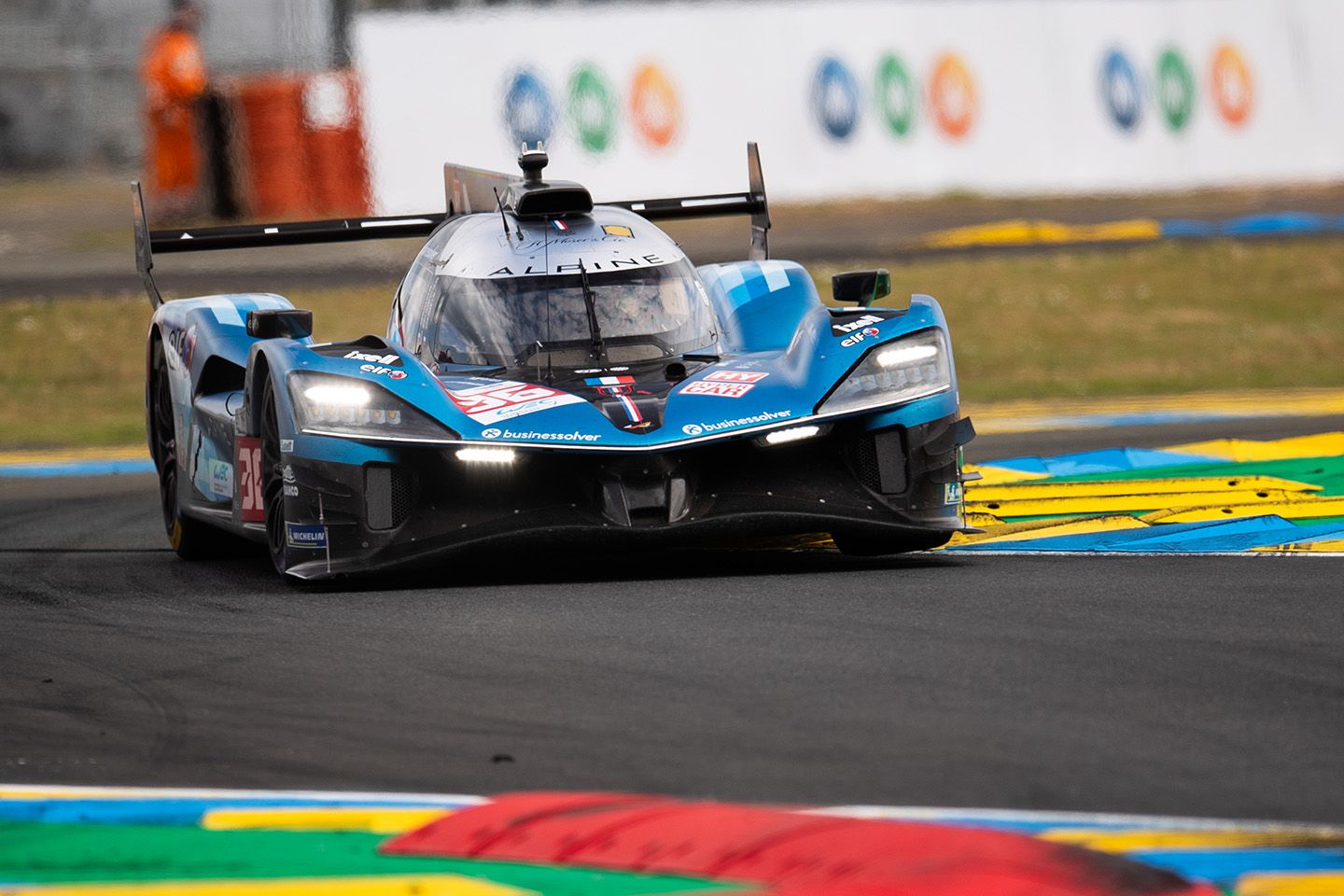
It’s fair to say Alpine isn’t having an easy time of it generally in motorsport at the moment. The firm’s new LMDh-based challenger has been off the pace in this year’s World Endurance Championship, and we all know the troubles the Formula 1 team is going through as rumours swirl concerning its future. Nevertheless, for Krief, racing is still critical to shaping Alpine’s image. “Even if we are using different technologies: ICE, hydrogen, electric, at the end of the day, we are always trying to sell more or less the same service. Driving pleasure, lightness for performance and, for the premium part, the kind of French ‘savoir faire’ (expertise). This is what we’re about.”
While Alpine sees EVs as its immediate future, with its ‘dream garage’ trio all being battery-powered, Krief was keen to stress that he’s “open-minded” about alternatives to traditional combustion power. That includes hydrogen combustion, as demonstrated by its Hy4 concept (formerly Alpenglow) during a demo lap ahead of the big race. At the moment, it’s powered by a 340hp 2.0-litre hydrogen combustion engine (and sounds ace), but “by October” the concept will be updated to a more powerful V6.
There’s just one problem, and that’s the tank. They’re big, heavy and chilled to at least -253 degrees Celsius to keep the hydrogen within liquefied. Great for planes and trucks, says Krief, less so for lightweight supercars like Hy4. “For cars the tank could be an issue, but there are some technologies arriving that are talking about tanks polymorph forms (a thermoplastic that becomes incredibly strong wheel cooled).” Sounds promising, but given how difficult the element is to store and how the filling network has all but dried up, is there really any future in hydrogen combustion? “Yeah of course”, Krief says with a grin. “We don’t know yet how much it’ll cost,” he adds, but with “no possible other solution” for larger vehicles, why not see if hydrogen combustion could work for cars too?
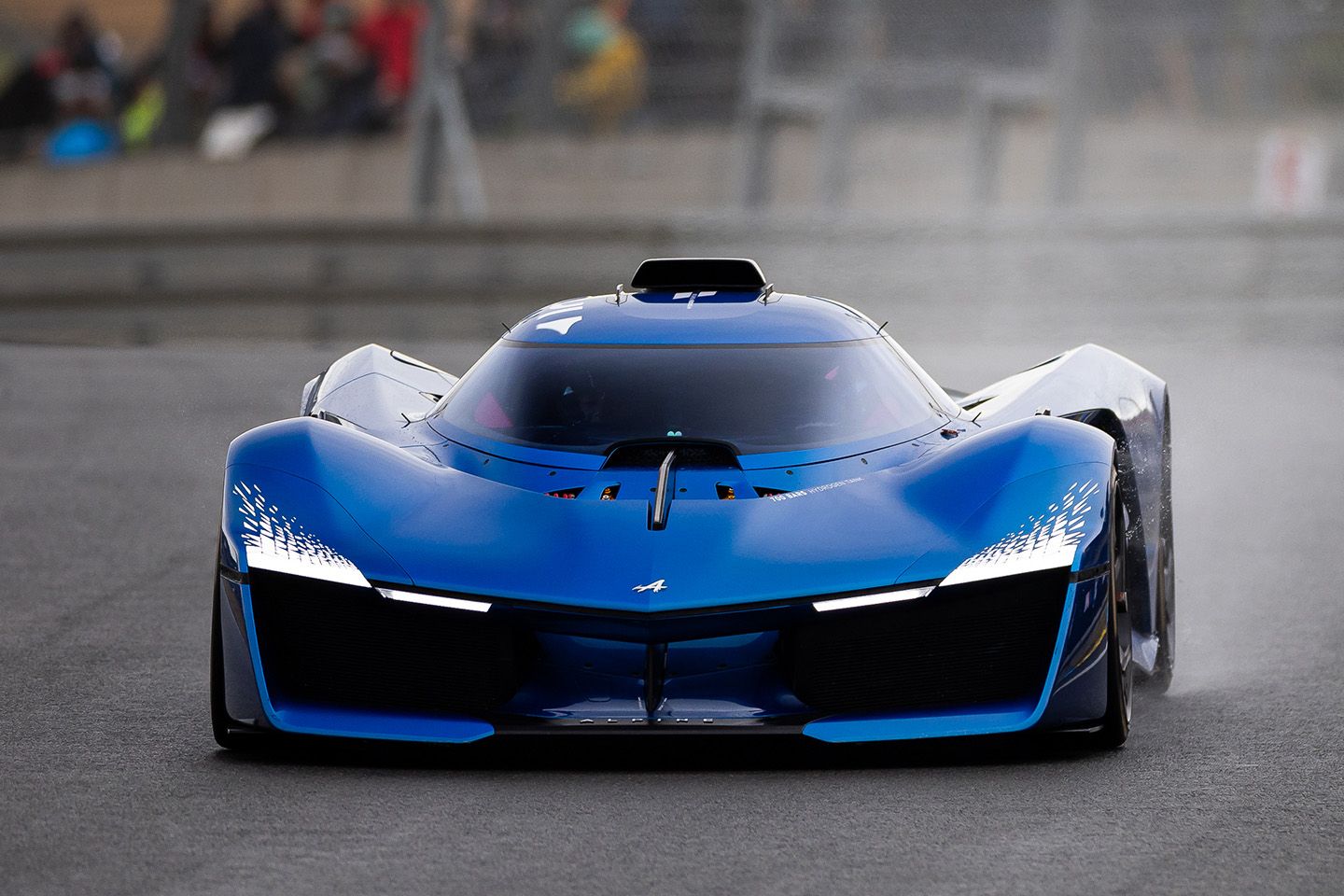
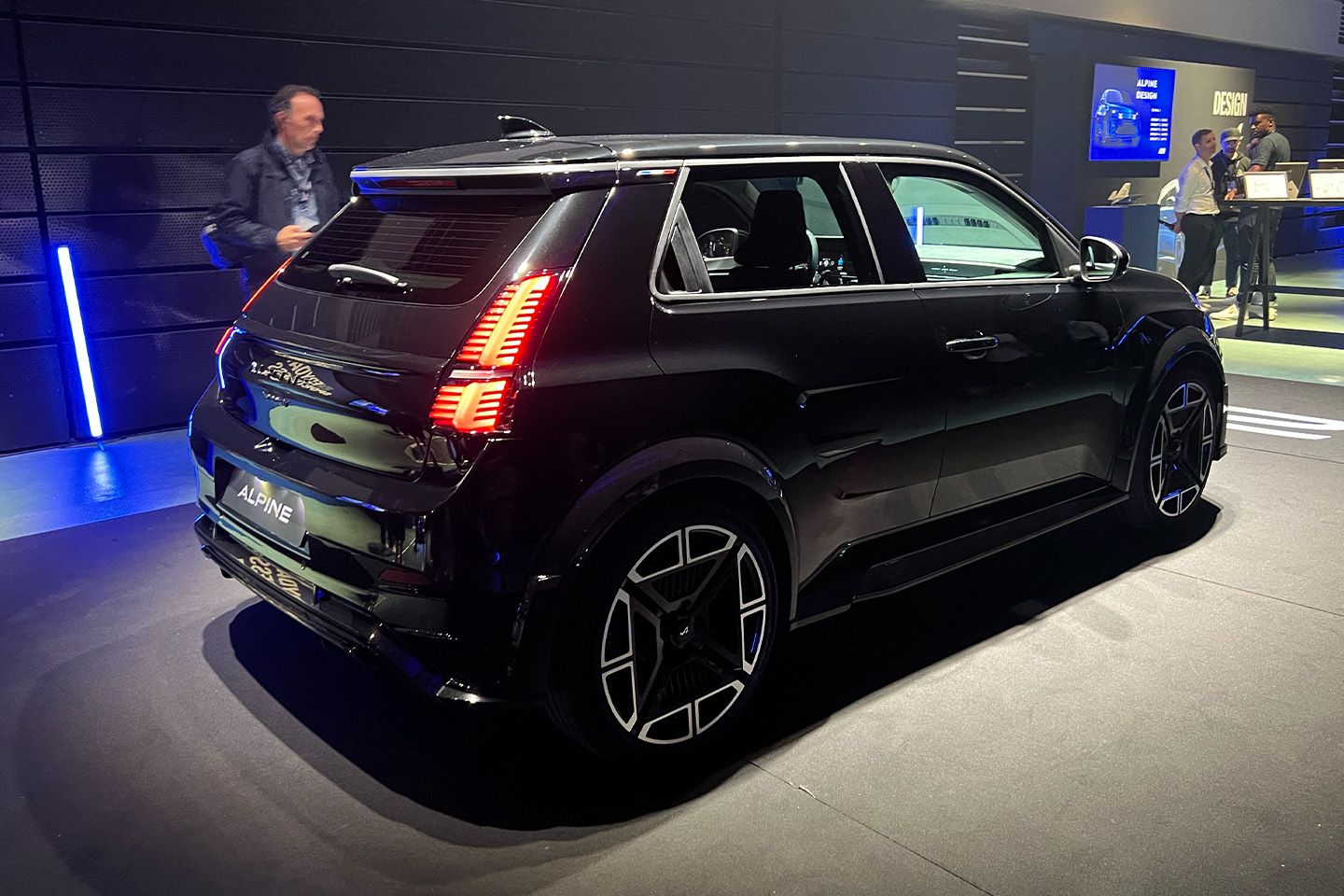
Moreover, there’s a real intent here to put the Hy4 into production. “We always do things to make it happen”, says Krief. “Alpenglow is important for styling research, it’s important for technology, but it’s important for the brand. It’s really important. By doing Alpenglow, we will show that we are able to play in the ground of the big guys.” So confident is Krief on getting the supercar on the road that he’s got a time frame in mind: “I think if everything is fine [with hydrogen advancements], I think that by 2028 you will be able to buy one.”
So the internal combustion engine isn’t dead to Alpine yet, with the caveat of it being able to crack the hydrogen enigma. For the A110, however, the future is certainly electric. At least “for today”, Krief concedes, noting that the sports car’s successor will be built on “a completely new platform developed [in-house].” The platform will spawn three models: “the A110, but also the 2+2 and the spider”, he adds, and says that the company is already considering a “potential alternative” model for the platform, suggesting more lightweight electric sports cars are on the drawing board.
The thing is, it’s difficult to see how the A110 can maintain one of its biggest attributes, a kerbweight of 1,100-ish kilos, when it’s lugging around a bulky battery. While Alpine doesn’t seem to have an ultra-lightweight battery solution tucked up its sleeve, Krief believes there are other ways to “perceived lightness”.
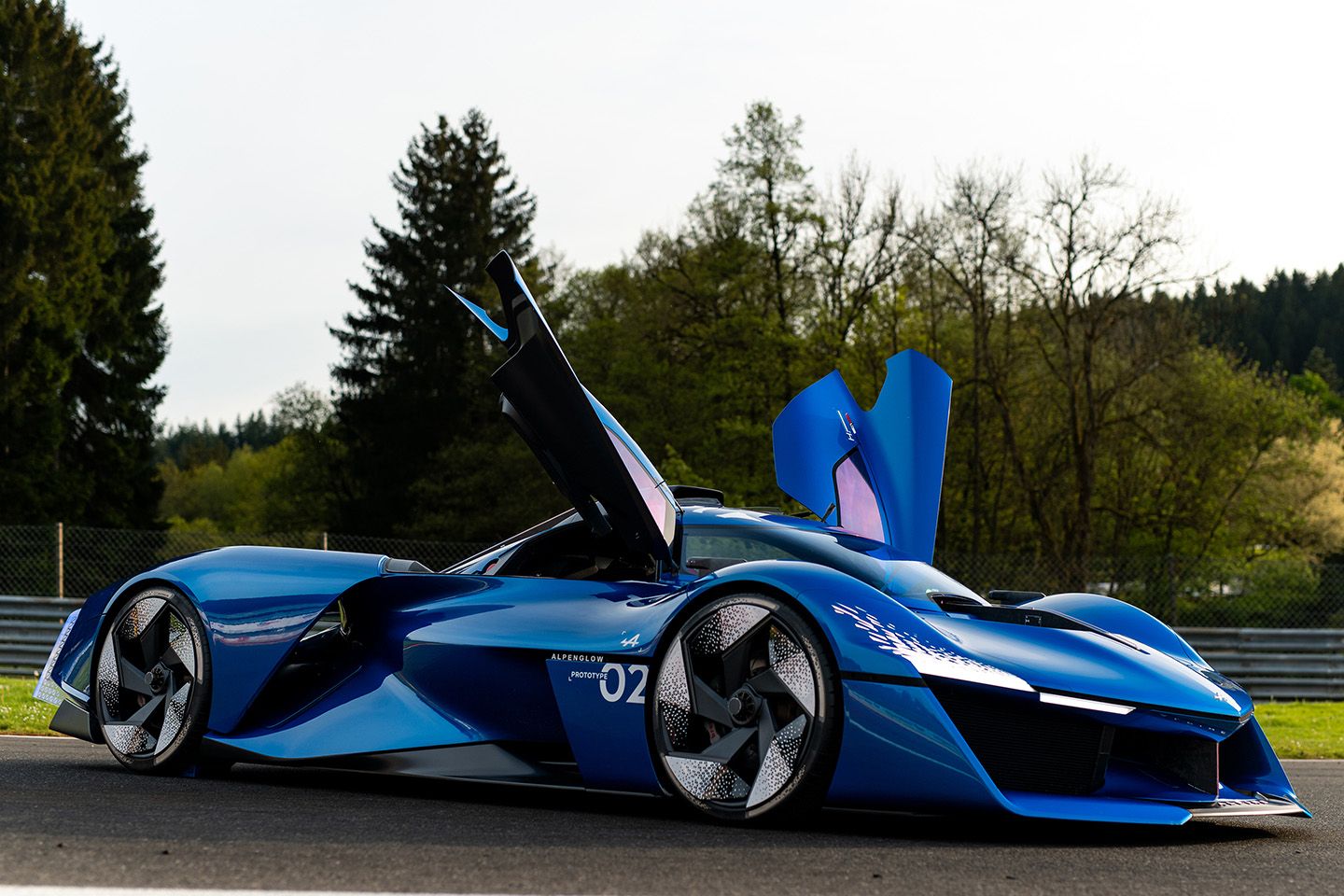
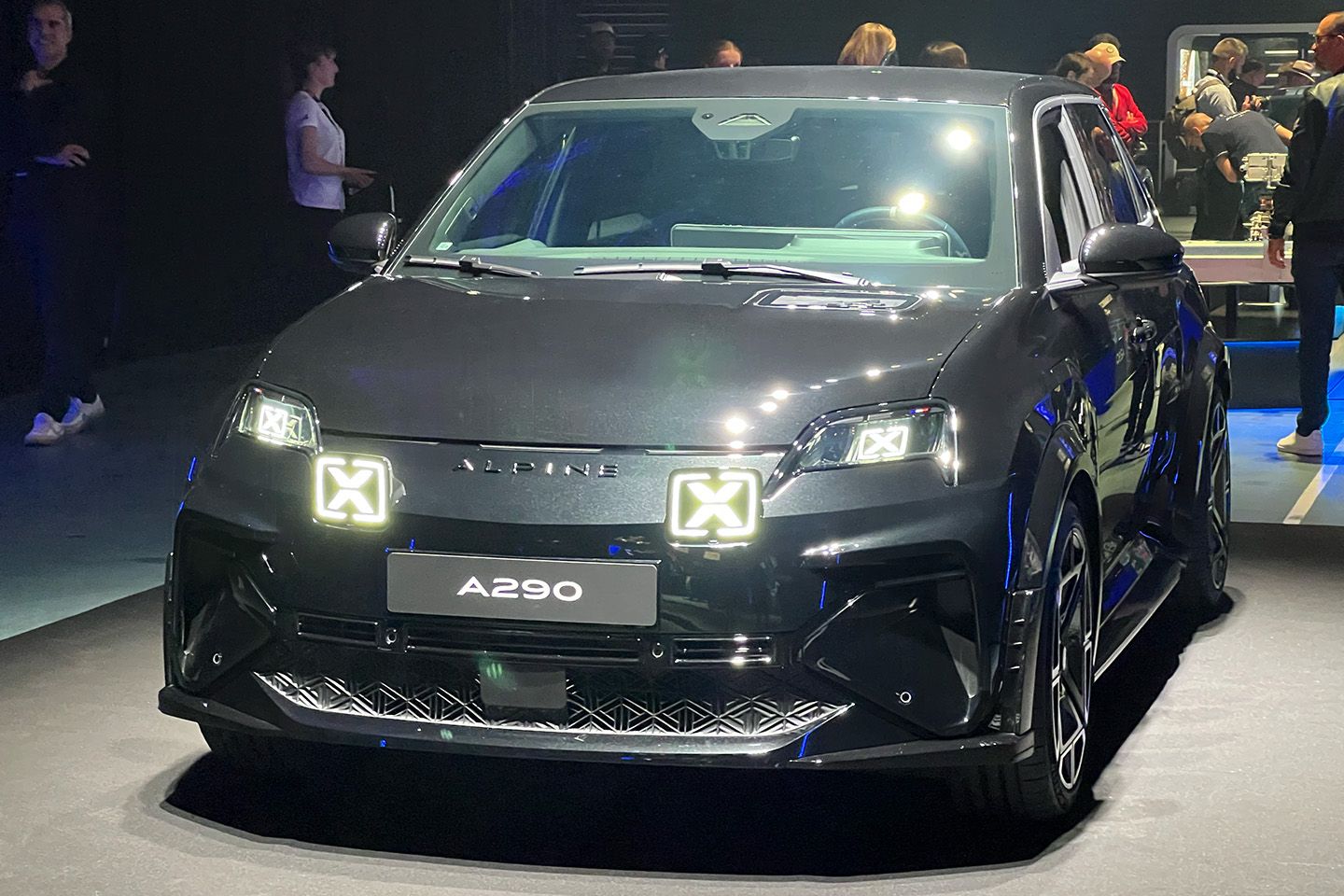
“It’s true for an EV car that you get more weight, at least today. But first you can try to concentrate the weight, the closest possible to the gravity centre and the lowest possible and this gives you some perceived lightness”, he adds. Then there are systems like torque vectoring, as seen on the A290, which can make adjustments to the torque delivery and brakes “every 10 milliseconds” to help disguise the extra heft. Finally, today’s A110 has “roughly 200 kilos of advantage” over its main competitors, Krief claims. “It means that even if we increase [the weight], it will be anyway always lighter than the rest.”
So while some compromises are inevitable, it does sound as though the electric A110 will at least be lightweight by EV standards. What it isn’t willing to mimic, however, are all the sensations of a combustion car. The augmented sound on the new A290, for instance, is taken from “everything that rotates”, the electric motor included, rather than a pre-recording of a combustion engine. And Hyundai Ioniq 5 N-style fake gears? “It would be too easy for me to take [gears]”, says Krief. “I want to use the benefits of EV and I want to do something specific for EV for feelings, and we are working on some specific stuff that are not reproducing the gear changes.” Boo.
We’ll have to wait and see how that pans out for the A290, yet there’s no denying Krief has a strong vision for Alpine’s future. Especially if it means the Alpenglow (or whatever it’s called) finds its way into production. All that’s left is to sort out the apparent pandemonium at the Formula 1 team. The returning Flavio Briatore should bring an air of calm and rationality, surely?
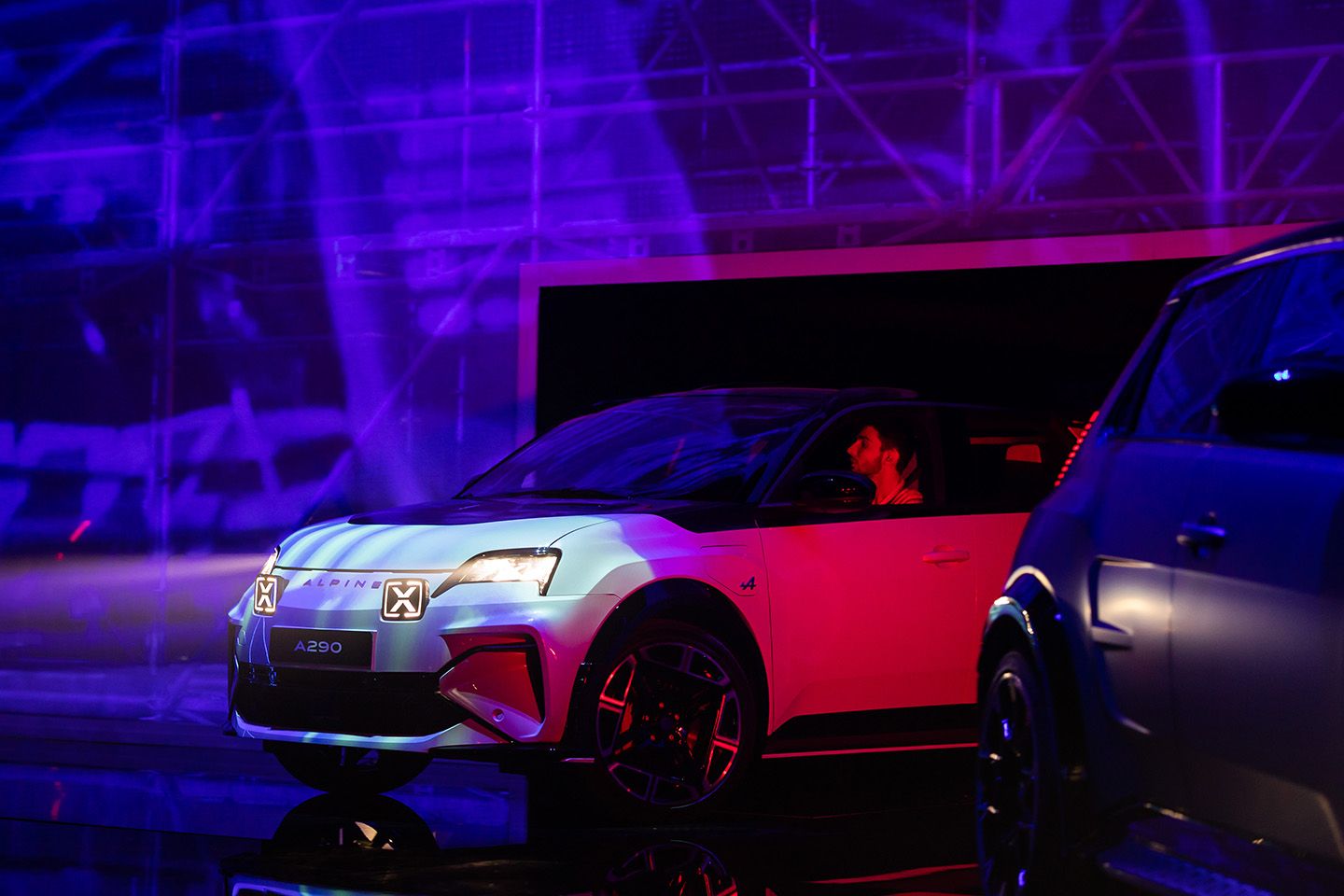
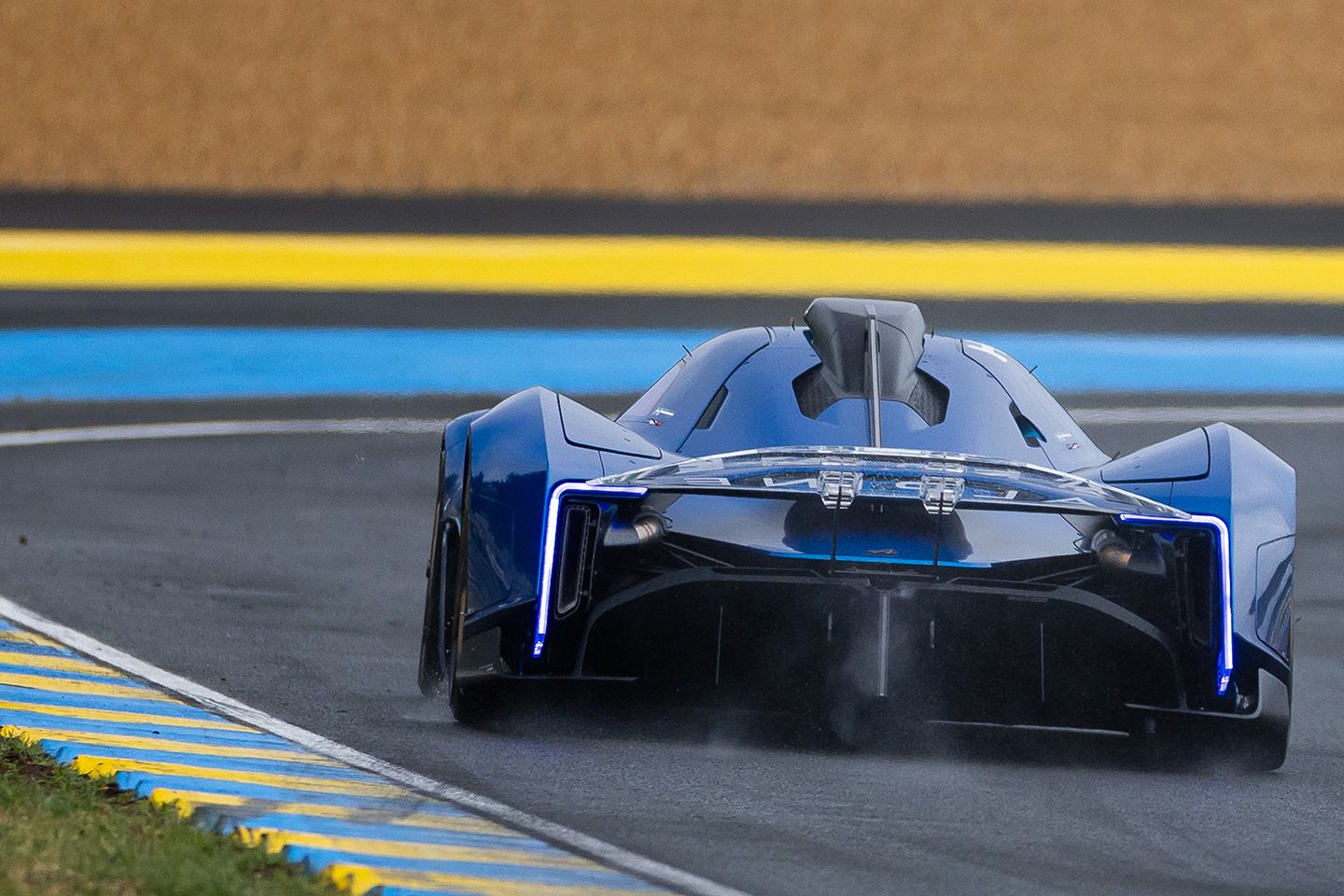
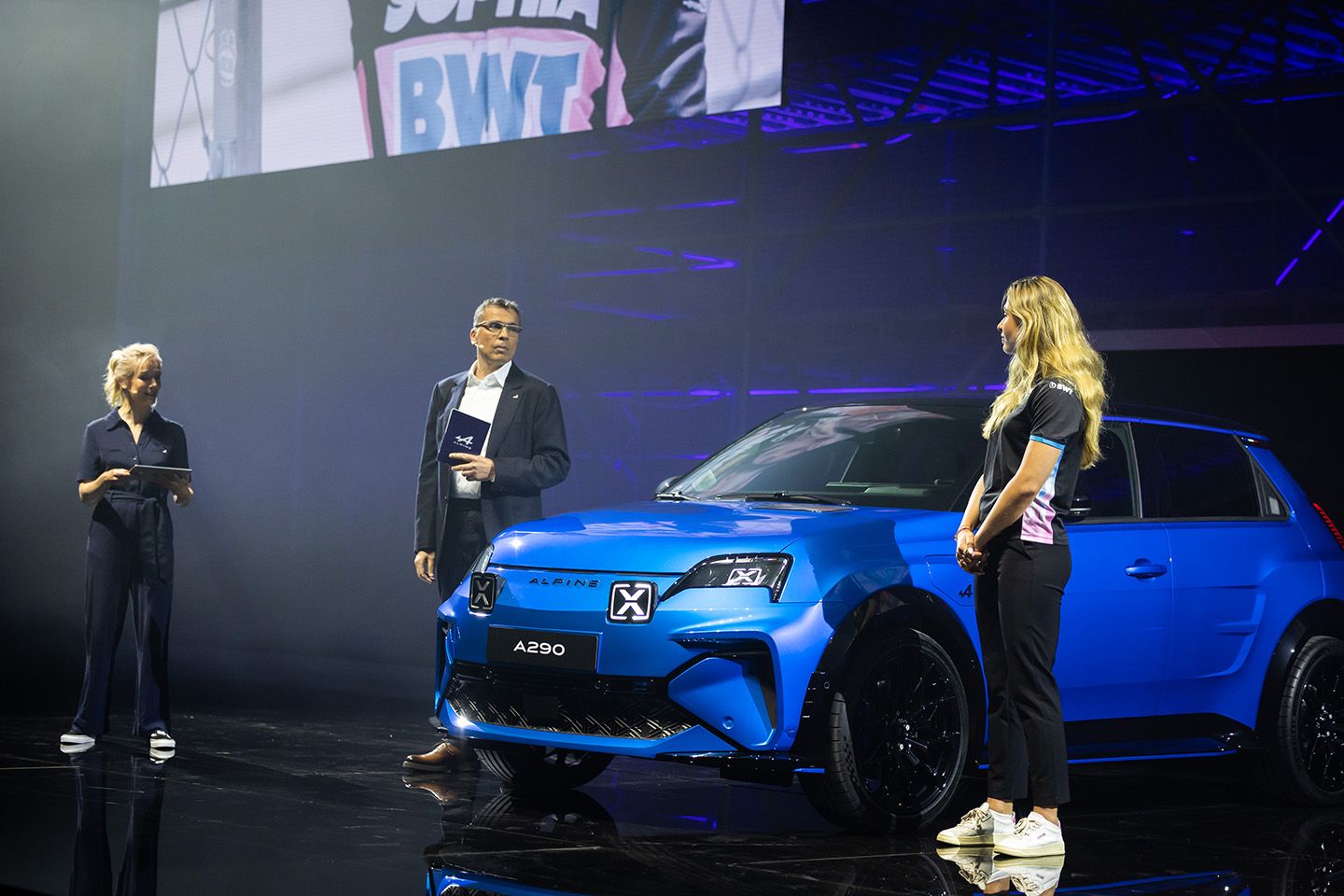
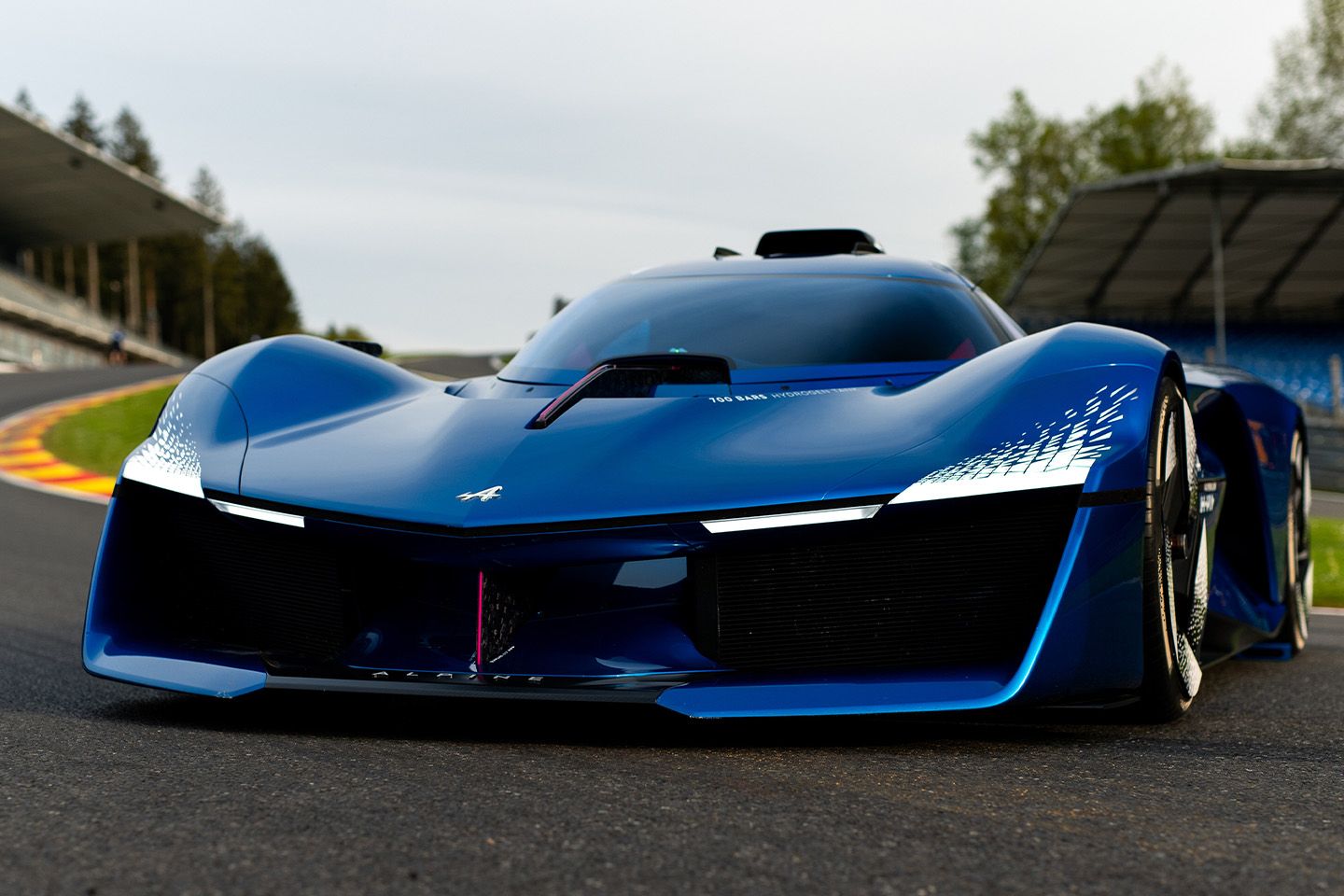
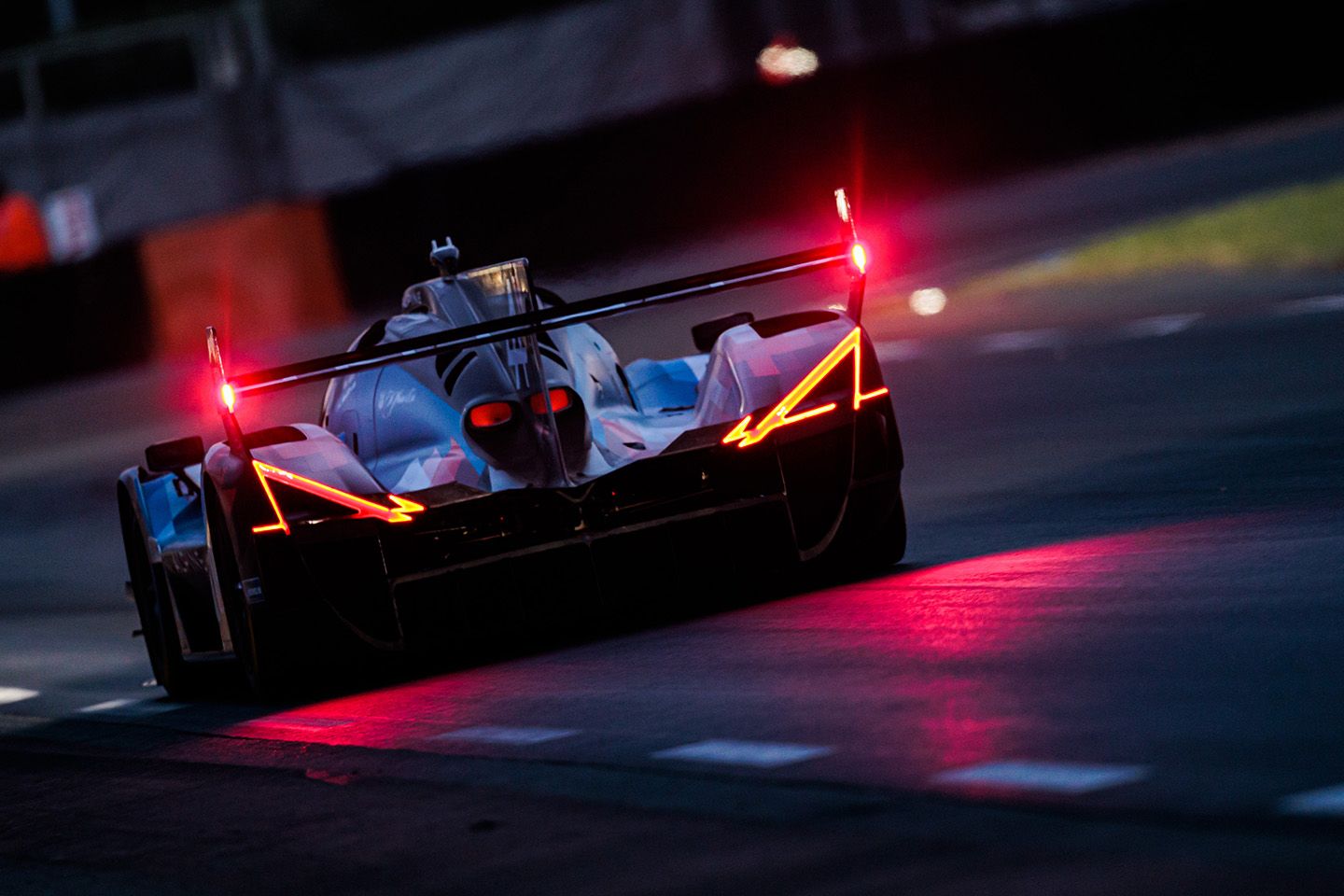
Hydrogen has had a very difficult time in the commercial market (practically non existent), and competitors like EVs are now already quicker on average than pretty much all comparable ICE vehicles; their only technical disadvantage may be range, however that is being addressed incrementally, and I think it wont be long before EVs have more range. How hydrogen will compete with that will be interesting to see, but I dont think it can. Even petrol is having a hard time competing with EV's; how hydrogen can manage it given the near century head start that petrol has enjoyed for a similar outcome, will be interesting to see.
I'm not an EV denier. I believe that battery-powered cars will become the norm for most people and there is nothing at all wrong with that, but I also don't buy the idea that manufacturers are talking about hydrogen solely to try and grab some cash to produce prototypes that will never see the light of day. What would be the point of that?
Maybe hydrogen won't go anywhere long-term for passenger cars but, where the the environment and cleaning up personal transport is concerned, I would argue that we and those who lead us should keep an open mind. And, as I said before, if car makers are willing to look into different technologies to make cars for enthusiasts, that should be celebrated on this website of all places.
If you now want to backtrack and suggest that batteries have to do some weird distance like 3,000 miles on a charge, go right ahead. But the use case for average distances travelled is well within the range of EVs sold today. It's most certainly is not a case of waiting 2 years or 10 years, or whatever other ridiculous claim you're intending on making.
In my view, something that is like petrol and can be refilled like petrol will be the winner, let the market decide. At the moment ev seems to be the winner, but it only works for a few people, we need something that works for everyone.
What's your definition of it only working for a few people? The Tesla model Y was the most popular model of car sold in the world in 2023. It would seem on that basis that it works for quite a few people, no?
And yes, I would absolutely accept it doesnt work for everyone. We all have our own use cases. But, the exception does not prove the rule. A pretty good way of looking at this is just how far does the AVERAGE person drive in a day, and can these EV's support that. And the answer is most certainly they can.
If you happen to fall outside of that, okay, no issue, but just recognise that you're not the average use case and in a minority.
Gassing Station | General Gassing | Top of Page | What's New | My Stuff



